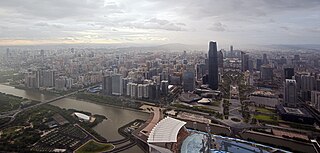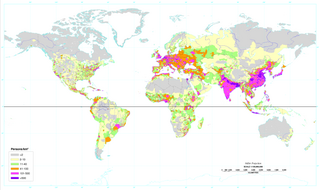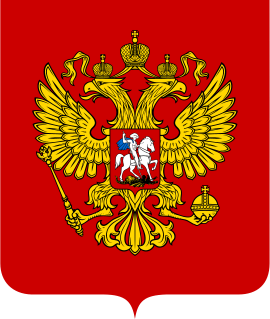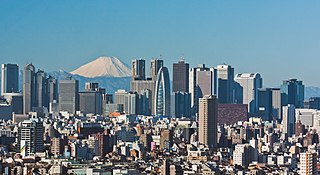| Look up urbanism in Wiktionary, the free dictionary. |
Urbanism is the study of how inhabitants of urban areas interact with the built environment.
Urbanism may also refer to:
| Look up urbanism in Wiktionary, the free dictionary. |
Urbanism is the study of how inhabitants of urban areas interact with the built environment.
Urbanism may also refer to:
| This disambiguation page lists articles associated with the title Urbanism. If an internal link led you here, you may wish to change the link to point directly to the intended article. |

A city is a large human settlement. It can be defined as a permanent and densely settled place with administratively defined boundaries whose members work primarily on non-agricultural tasks. Cities generally have extensive systems for housing, transportation, sanitation, utilities, land use, and communication. Their density facilitates interaction between people, government organisations and businesses, sometimes benefiting different parties in the process, such as improving efficiency of goods and service distribution. This concentration also can have significant negative consequences, such as forming urban heat islands, concentrating pollution, and stressing water supplies and other resources.
An urban legend, urban myth, urban tale, or contemporary legend is a genre of folklore comprising stories circulated as true, especially as having happened to a friend or family member, often with horrifying or humorous elements. These legends can be entertainment, but often concern mysterious peril or troubling events, such as disappearances and strange objects. They may also be confirmation of moral standards, or reflect prejudices, or be a way to make sense of societal anxieties.

Urbanization refers to the population shift from rural areas to urban areas, the decrease in the proportion of people living in rural areas, and the ways in which each society adapts to this change. It is predominantly the process by which towns and cities are formed and become larger as more people begin living and working in central areas. Although the two concepts are sometimes used interchangeably, urbanization should be distinguished from urban growth: urbanization is "the proportion of the total national population living in areas classed as urban", while urban growth refers to "the absolute number of people living in areas classed as urban". The United Nations projected that half of the world's population would live in urban areas at the end of 2008. It is predicted that by 2050 about 64% of the developing world and 86% of the developed world will be urbanized. That is equivalent to approximately 3 billion urbanites by 2050, much of which will occur in Africa and Asia. Notably, the United Nations has also recently projected that nearly all global population growth from 2017 to 2030 will be by cities, about 1.1 billion new urbanites over the next 10 years.

A metropolitan area is a region consisting of a densely populated urban core and its less-populated surrounding territories, sharing industry, infrastructure, and housing. A metro area usually comprises multiple jurisdictions and municipalities: neighborhoods, townships, boroughs, cities, towns, exurbs, suburbs, counties, districts, states, and even nations like the eurodistricts. As social, economic and political institutions have changed, metropolitan areas have become key economic and political regions.

Population density is a measurement of population per unit area, or exceptionally unit volume; it is a quantity of type number density. It is frequently applied to living organisms, most of the time to humans. It is a key geographical term. In simple terms, population density refers to the number of people living in an area per square kilometre.

Russia is divided into several types and levels of subdivisions.

In general, a rural area or countryside is a geographic area that is located outside towns and cities. The Health Resources and Services Administration of the U.S. Department of Health and Human Services defines the word rural as encompassing "...all population, housing, and territory not included within an urban area. Whatever is not urban is considered rural."

Urban renewal is a program of land redevelopment often used to address urban decay in cities. Urban renewal is the clearing out of blighted areas in inner cities to clear out slums and create opportunities for higher class housing, businesses, and more. A primary purpose of urban renewal is to restore economic viability to a given area by attracting external private and public investment and by encouraging business start-ups and survival.

Karl-Heinz Urban is an actor from New Zealand. His career began with appearances in New Zealand films and TV series such as Xena: Warrior Princess. His first Hollywood role was in the 2002 horror film Ghost Ship. Since then, he has appeared in many high-profile movies, including the second and third instalments of The Lord of the Rings trilogy in the role of Éomer. He has also portrayed Leonard McCoy in the Star Trek reboot film series, Vaako in the Riddick film series, and Judge Dredd in Dredd. Since 2019, he has starred as Billy Butcher in Amazon's web television series The Boys.
Urban contemporary, also known as urban pop, or just simply urban, is a music radio format. The term was coined by New York radio DJ Frankie Crocker in the early to mid-1970s. Urban contemporary radio stations feature a playlist made up entirely of genres such as R&B, pop-rap, British R&B, quiet storm, adult contemporary, hip hop, Latin music such as Latin pop, Chicano R&B and Chicano rap, and Caribbean music such as reggae. Urban contemporary was developed through the characteristics of genres such as R&B and soul. Largely a US phenomenon, virtually all urban contemporary formatted radio stations in the United States are located in cities that have sizeable African-American populations, such as New York City, Washington, D.C., Detroit, Atlanta, Miami, Chicago, Cleveland, Philadelphia, Montgomery, Memphis, St. Louis, Newark, New Orleans, Cincinnati, Dallas, Houston, Oakland, Los Angeles, Trenton, Flint, Baltimore, Boston, Birmingham, Savannah, and Jackson.
Urban-type settlement is an official designation for a semi-urban settlement, used in several Eastern European countries. The term was historically used in Bulgaria, Poland, and the Soviet Union, and remains in use today in 10 of the post-Soviet states.

Snopes, formerly known as the Urban Legends Reference Pages, is a fact-checking website. It has been described as a "well-regarded reference for sorting out myths and rumors" on the Internet. It has also been seen as a source for validating and debunking urban legends and similar stories in American popular culture.

Urban sprawl or suburban sprawl mainly refers to the unrestricted growth in many urban areas of housing, commercial development, and roads over large expanses of land, with little concern for urban planning. In addition to describing a particular form of urbanization, the term also relates to the social and environmental consequences associated with this development. In the postindustrial era, sprawl has entailed no clear-cut disadvantage, such as the loss of protection, nor resulted in a uniquely identifiable cost such as investment in new fortification, however its disadvantages and costs include increased travel time, transport costs, pollution, destruction of countryside, and so on. In Continental Europe, the term peri-urbanisation is often used to denote similar dynamics and phenomena, although the term urban sprawl is currently being used by the European Environment Agency. There is widespread disagreement about what constitutes sprawl and how to quantify it. For example, some commentators measure sprawl only with the average number of residential units per acre in a given area. But others associate it with decentralization, discontinuity, segregation of uses, and so forth.

An urban area, or built-up area, is a human settlement with a high population density and infrastructure of built environment. Urban areas are created through urbanization and are categorized by urban morphology as cities, towns, conurbations or suburbs. In urbanism, the term contrasts to rural areas such as villages and hamlets; in urban sociology or urban anthropology it contrasts with natural environment. The creation of early predecessors of urban areas during the urban revolution led to the creation of human civilization with modern urban planning, which along with other human activities such as exploitation of natural resources led to a human impact on the environment. "Agglomeration effects" are in the list of the main consequences of increased rates of firm creation since. This is due to conditions created by a greater level of industrial activity in a given region. However, a favorable environment for human capital development would also be generated simultaneously.

Keith Lionel Urban is a New Zealander-Australian singer, songwriter and record producer well known for his work in country music. In 1991, he released a self-titled debut album and charted four singles in Australia before moving to the United States the following year. He found work as a session guitarist before starting a band known as The Ranch, which recorded one studio album on Capitol Nashville and charted two singles on the US Billboard Hot Country Songs chart.

Urban Dictionary is a crowdsourced online dictionary for slang words and phrases, operating under the motto "Define Your World." The website was founded in 1999 by Aaron Peckham. Originally, Urban Dictionary was intended as a dictionary of slang, or cultural words or phrases, not typically found in standard dictionaries, but it is now used to define any word, event or phrase. Words or phrases on Urban Dictionary may have multiple definitions, usage examples, and tags. As of 2014, the dictionary had over seven million definitions, while about 2,000 new entries were being added daily. Many definitions, though, are merely jokes or offensive statements.

In geography, statistics and archaeology, a settlement, locality or populated place is a community in which people live. The complexity of a settlement can range from a small number of dwellings grouped together to the largest of cities with surrounding urbanized areas. Settlements may include hamlets, villages, towns and cities. A settlement may have known historical properties such as the date or era in which it was first settled, or first settled by particular people.

Urban planning is a technical and political process concerned with the development and design of land use and the built environment, including air, water, and the infrastructure passing into and out of urban areas, such as transportation, communications, and distribution networks. Urban planning deals with physical layout of human settlements. The primary concern is the public welfare, which includes considerations of efficiency, sanitation, protection and use of the environment, as well as effects on social and economic activities. Urban planning is considered an interdisciplinary field that includes social science, architecture, human geography, politics, engineering and design sciences. It is closely related to the field of urban design and some urban planners provide designs for streets, parks, buildings and other urban areas. Urban planning is also referred to as urban and regional planning, regional planning, town planning, city planning, rural planning, urban development, physical planning, urban management or some combination in various areas worldwide.